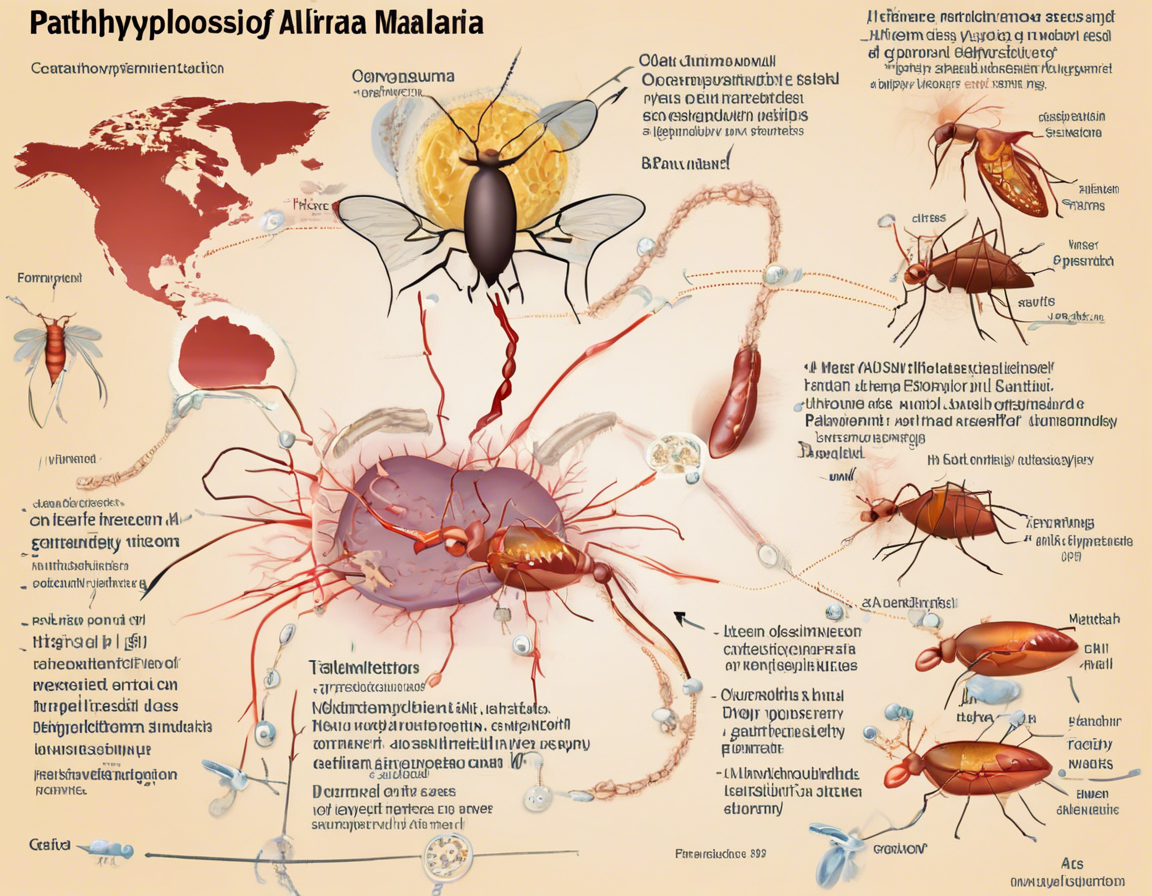Introduction
Malaria, a mosquito-borne infectious disease caused by parasitic protozoans of the Plasmodium genus, continues to be a significant global health concern, with over 200 million cases and nearly half a million deaths reported annually. Understanding the pathophysiology of malaria is crucial for the development of effective prevention and treatment strategies.
Pathogen
Plasmodium parasites are transmitted through the bites of infected female Anopheles mosquitoes. Once inside the human host, the parasites travel to the liver, where they multiply and mature before invading red blood cells. This invasion leads to the clinical manifestations of malaria, including fever, chills, anemia, and organ dysfunction.
Immune Response
The body’s immune response to the Plasmodium infection plays a crucial role in the pathophysiology of malaria. Initially, innate immunity recognizes the presence of the parasites and mounts a response to control the infection. This is followed by the activation of adaptive immunity, where specific immune cells target and eliminate the parasites. However, Plasmodium have developed mechanisms to evade the immune system, leading to chronic infection and disease progression.
Clinical Manifestations
Malaria presents with a wide range of clinical manifestations, from uncomplicated febrile illness to severe complications such as cerebral malaria, severe anemia, and multi-organ failure. The severity of the disease is influenced by factors such as the species of Plasmodium involved, the host’s immune status, and any underlying health conditions.
Complications
Severe malaria can result in life-threatening complications, with cerebral malaria being one of the most serious. This condition is characterized by altered mental status, seizures, and coma, and carries a high risk of mortality if not promptly treated. Other complications of malaria include acute respiratory distress syndrome, renal failure, and metabolic disturbances.
Diagnosis
Diagnosing malaria involves a combination of clinical evaluation, blood tests such as thick and thin blood smears, rapid diagnostic tests, and molecular techniques like polymerase chain reaction (PCR). Early and accurate diagnosis is crucial for initiating timely treatment and preventing severe disease outcomes.
Treatment
The primary treatment for malaria is antimalarial medications, with artemisinin-based combination therapies being the current first-line treatment for uncomplicated malaria. In severe cases, intravenous artesunate is recommended. Supportive care, including management of complications and blood transfusions in cases of severe anemia, is also essential.
Prevention
Preventing malaria transmission relies on a multi-faceted approach, including vector control measures such as insecticide-treated bed nets and indoor residual spraying, chemoprevention strategies for high-risk populations, and community engagement. Vaccines such as RTS,S/AS01 have shown some efficacy in clinical trials and offer promise for malaria control efforts.
Conclusion
In conclusion, understanding the pathophysiology of malaria is essential for addressing this global health challenge. By elucidating the complex interactions between the Plasmodium parasite and the human host, researchers can develop new interventions to prevent transmission, improve diagnosis, and enhance treatment outcomes. Ultimately, a comprehensive approach that combines preventive measures, early diagnosis, and effective treatment is necessary to reduce the burden of malaria worldwide.
FAQs
- What are the different species of Plasmodium that cause malaria?
-
There are five species of Plasmodium that infect humans: P. falciparum, P. vivax, P. ovale, P. malariae, and P. knowlesi.
-
How does drug resistance impact malaria treatment?
-
Drug resistance, particularly in P. falciparum, poses a significant challenge to malaria control efforts and necessitates the development of alternative treatment strategies.
-
Can malaria be prevented through vaccines alone?
-
While vaccines like RTS,S/AS01 show promise, a combination of vector control, chemoprevention, and community engagement is needed for comprehensive malaria prevention.
-
What are some common complications of severe malaria?
-
Complications of severe malaria include cerebral malaria, acute respiratory distress syndrome, renal failure, and metabolic disturbances.
-
How does malaria differ from other mosquito-borne diseases?
- Malaria is caused by the Plasmodium parasite, while diseases like dengue and Zika are caused by different pathogens and have distinct clinical presentations and complications.

